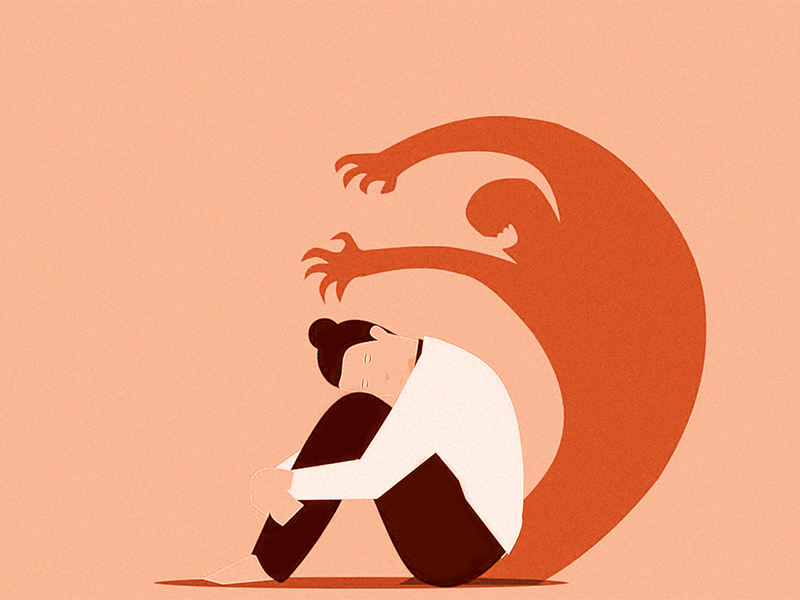At some point in our lives, all of us have felt anxious, nervous or worried. Anxiety is an emotion that is normal and common in stressful situations or times of uncertainty. These feelings can often be healthy because they help us adjust to life. At low levels, it helps us be more productive, work more efficiently and be more attentive and alert.
However, there are times when this same anxiety becomes problematic, causing obstacles in everyday life. There are people who suffer from symptoms for no reason or apparent reason. These disorders cause worry, tension, nerves and fear at levels that are totally disproportionate.
Anxiety disorders affect 40 million people in the United States. This is one of the most common mental illnesses. It is important to understand the difference between normal feelings of anxiety vs. an anxiety disorder. We must pay attention to the duration and severity of the feelings because sometimes they can manifest in disproportionate ways. Anxiety becomes a disorder when the person loses control of their reactions and has extreme responses to normal situations. These disorders cause damage to the lives of people who suffer from them. They can affect a person's daily functioning, family and social relationships.
Symptoms of this disorder include:
- uncontrollable worry
- difficult to focus
- irritability
- difficulty to sleep
- changes in heart rate
- nausea
- throat pressure or difficulty breathing
- feeling of fainting
Anxiety disorders can be caused by different factors. It is commonly the result of the stress of everyday life. Some examples include: family or social problems, money or work worries, divorce/separation, grief, big changes in our lives, and physical or emotional problems. These disorders can also be caused by genetic factors or different brain conditions. The use of some medications, alcohol or drug abuse can also cause these symptoms.
In some cases, anxiety can be treated at home without medical supervision. Sometimes small lifestyle changes can lower your levels. It is important to practice different activities that promote relaxation, such as yoga, meditation and personal self-care. Exercise not only helps with physical health, but also mental well-being. With this condition, it is also important to consume a healthy diet and limit coffee or alcohol consumption.
If anxiety symptoms worsen over time, it is important to seek professional help. The most common way to treat this condition is through psychological counseling. Cognitive behavioral therapy helps reduce anxiety and irrational thoughts. In some critical or severe cases, psychotropic medication, which must be prescribed by a doctor, is of great help. These medications help provide short-term relief from anxiety symptoms, but unfortunately they are not designed for long-term use. It is important to consult with doctors and psychologists about the risks and side effects of these medicines.
Sofia Madrid
MSW, LSW/LCADC intern
Rutgers University, School of Social Work





